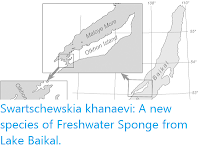The United States Geological Survey recorded a Magnitude 5.3 Earthquake at a depth of 10.0 km, beneath southern Lake Baikal in Siberia, slightly before 5.45 am local time on Thursday 10 December 2020 (slightly before 9.45 pm on Wednesday 9 December GMT). There are no reports of any damage ot casualties associated with this event, but people have reported feeling it locally.
Lake Baikal is the oldest and deepest freshwater lake in the world, over 1637 m deep and 400 km long and having formed 20-25 million years ago it is a biodiversity hotspot, hosting amongst other things the world's only freshwater Seal. The depth and longevity of this lake is due to its unique geology (most lakes are just large depressions filled with water); Lake Baikal is part of a forming rift system, with the potential to eventually split the great continent of Eurasia in two (not all rift systems live up to this potential, many stall, and either stop growing or close again). The rift extends southwest from the Lake, forming the Tunka Basin of Siberia. The rift is growing at a rate of about 4.5 mm per year around the lake, and 6.3 mm per year in the Tunka Basin. This has lead to some large Earthquakes on the system, including a Magnitude 9 quake in August 1959, which displaced the bottom of the lake by up to 20 meters.
If the Baikal Rift system continues to open it will eventually grow into a continent-spanning rift like the Great Rift Valley of Africa, then a narrow ocean like the Red Sea, and eventually a fully mature ocean like the Atlantic.
See also...



Follow Sciency Thoughts on Facebook.
Follow Sciency Thoughts on Twitter.





